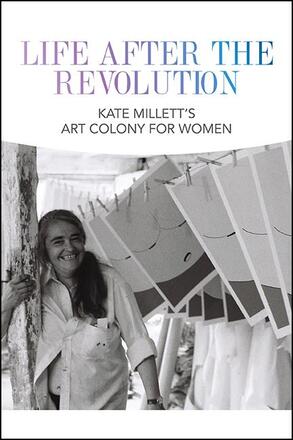
Life after the Revolution
Kate Millett’s Art Colony for Women
Shares the unique story of a Christmas tree farm in Poughkeepsie, New York, where, for over four decades, women artists boldly built a space where they could create community and art together.
Description
In 1970, with the advance from her book Sexual Politics, writer and visual artist Kate Millett (1934–2017) bought a run-down farmhouse on the outskirts of Poughkeepsie, New York. Originally intended as a private retreat, by 1978, in collaboration with her partner Sophie Keir, plans for a women’s art colony were underway. Friends, artists, and volunteers from the Women’s Movement journeyed to the Farm to renovate the barns and create living quarters as well as art studio spaces. To make the colony self-sustainable, Millett purchased seventy-three acres of neighboring land; the rather unlikely crop they chose to grow was Christmas trees. By the mid-1980s, summer residencies began, with artists working on the Farm for five-hours a day and spending the remaining time on their art practice. Millett described the art colony as “life after the revolution,” a place where women could experience freedoms that the Women’s and LGBTQ civil rights movements were fighting for, but that were not yet available in mainstream society. For over four decades Millett Farm was a dynamic haven where artists facing pervasive sexism and homophobia boldly built a space where they could create community and art together. This exhibition catalog tells the story of this inspiring venture in contemporary art and queer feminist activism with archival photographs, an essay by a former colonist Anne B. Keating, and a group conversation between founders of Millett Farm.
Anna Conlan is the Neil C. Trager Director at the Samuel Dorsky Museum of Art at SUNY New Paltz. Her previous publications include Totally Dedicated: Leonard Contino 1940–2016 and essays in Art After Stonewall, 1969–1989 and Gender, Sexuality, and Museums: A Routledge Reader.